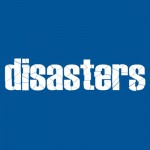Today’s world is seeing more typhoons, floods, earthquakes and other disasters than ever before. But do we have to be victims of these raging weather patterns? The experts say no. There are choices we can make about the way we manage our planet and its people. For example:
-
Do we place populations in safe locations?
- Do we design cities with nature or against it?
- Have we undertaken assessments at local/national levels so we can manage potential risk?
- Are we destroying the buffers that nature itself provides to protect us?
- Are we educating people so they know how to recognise an impending disaster and how to handle it?
- Is our construction safe and compliant with code?
- Do we have early warning systems in place?
- Are we caring sufficiently for those at special risk: people with disabilities, children, women, the elderly and the poor?
- Can we stop the environmental abuse that is seeing more disasters happen?
It is thinking like this that makes experts, including the United Nations, say there is no such thing as ‘natural disasters’. There are natural hazards, yes, but they only become disasters when man makes mistakes. They urge the world to take action that will support Disaster Risk Reduction and make communities and countries more resilient.
It is already saving lives. Our hope is that the new simulation will see people further motivated to reduce disaster risk and see many lives saved.




